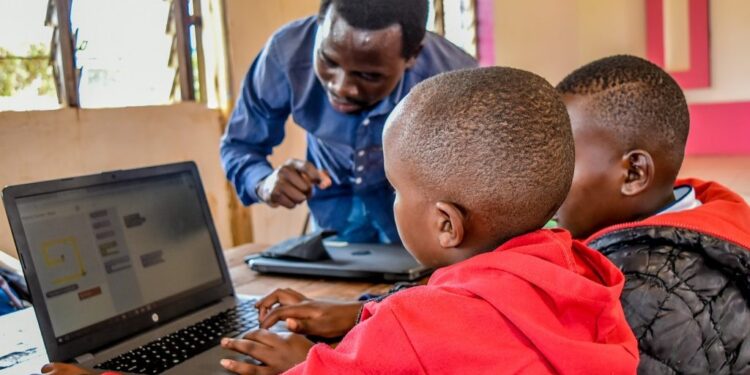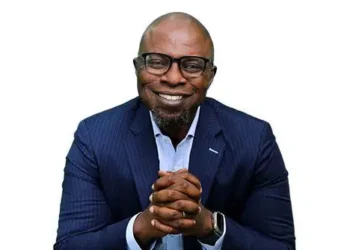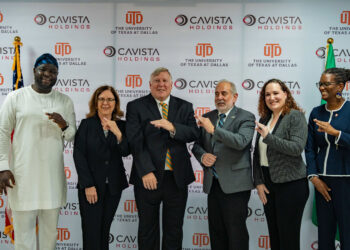In recent years, the narrative surrounding technology in Africa has been dominated by its potential to drive economic growth and innovation. Yet, one of the most significant applications of technology lies in its ability to address one of the continent’s most persistent challenges: education. For Nigeria and much of Africa, Educational Technology (EdTech) represents not just a tool, but a transformative force capable of reshaping the way education is delivered, accessed, and experienced.
Nigeria’s education sector is riddled with systemic challenges. As of 2017, the country had the highest number of children out of school globally, according to BBC reports. The implications are profound: high illiteracy rates, unfulfilled economic potential, and a cycle of poverty that is hard to break. Despite initiatives from government and international bodies, the gaps remain significant. This is where technology—specifically EdTech—steps in as a game-changer.
EdTech, or Educational Technology, is an emerging industry that leverages technological solutions to enhance learning experiences. From digitized content to virtual classrooms, EdTech integrates tools and systems that modernize education delivery. It is a thriving market in North America, but its potential in Africa is enormous, with the ability to bridge gaps in access and quality. EdTech offers immense potential to revolutionize education by improving accessibility and inclusion. It can bring education to millions of students who are otherwise excluded from traditional learning environments. The COVID-19 pandemic showcased how technology could facilitate remote learning on a global scale. In Nigeria, the lessons from this period can be harnessed to create sustainable solutions, such as e-learning platforms and digitized libraries. These tools enable students to learn from home, even in remote areas.
Another transformative aspect is personalized learning. In developed regions, adaptive learning systems allow students to progress at their own pace, tailoring content to individual needs. By incorporating similar technologies, Nigeria can modernize its curriculum, improving student engagement and outcomes.
Resource optimization is another area where EdTech can make a difference. The reliance on physical textbooks—often costly and prone to becoming outdated—is reduced with digital materials. These resources are not only more affordable but also easier to update, ensuring that students always have access to relevant content. Teachers also stand to benefit from EdTech through access to innovative tools that enhance instruction, assessment, and professional development. The ability to streamline teaching processes and improve student performance fosters a more effective educational system.
Beyond the classroom, the industry has created the opportunity for many companies to design products that create improvements or solutions towards student recruitment, adaptive content, institutional data, curriculum management, campus registration, among others. It creates a system where these private entities can improve the processes within educational institutions and an opportunity to generate income and innovation beyond the education sector,
contributing to economic growth.
Despite its promise, the adoption of EdTech in Nigeria faces barriers such as poor internet penetration, high costs of devices, and limited digital literacy among teachers and students. However, these challenges are not insurmountable. Public-private partnerships, targeted investments in infrastructure, and training programmes can accelerate the integration of technology into education.
For Nigeria and Africa at large, the adoption of EdTech is not just a technological shift; it is a societal imperative. It offers a pathway to more inclusive, equitable, and effective education systems that empower individuals and drive national development.
By redefining the purpose of technology beyond coding and software development, we unlock its potential as a catalyst for change. For young Nigerians, technology is not just about building apps or writing code—it is about building futures. The time to harness this power is now.
_________________
I’m currently a Marketing Executive based in the UK. Additionally, I’m a communications enthusiast with over four years of experience in the communications and developmental sectors. I am committed to curating ethical and interactive content for diverse audiences. I have hands-on experience working with developmental agencies on empowerment projects in communities within the UK and West Africa.
I also have a passion for photography, content writing,and creative direction.
Contact details or social media handles
Folayinka2015@yahoo.com
IG: Folayinka_
LinkedIn: Debbie Olayinka



















































































 EduTimes Africa, a product of Education Times Africa, is a magazine publication that aims to lend its support to close the yawning gap in Africa's educational development.
EduTimes Africa, a product of Education Times Africa, is a magazine publication that aims to lend its support to close the yawning gap in Africa's educational development.